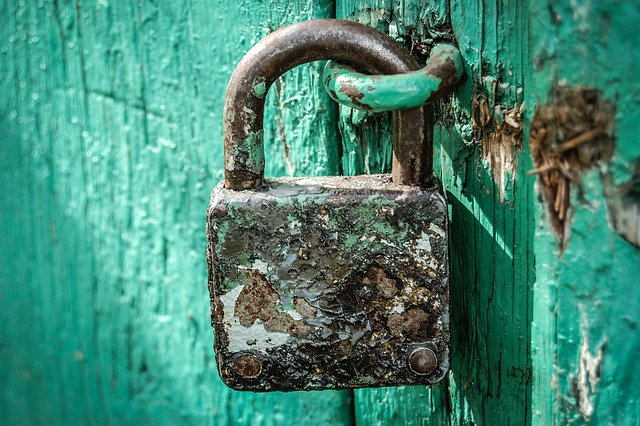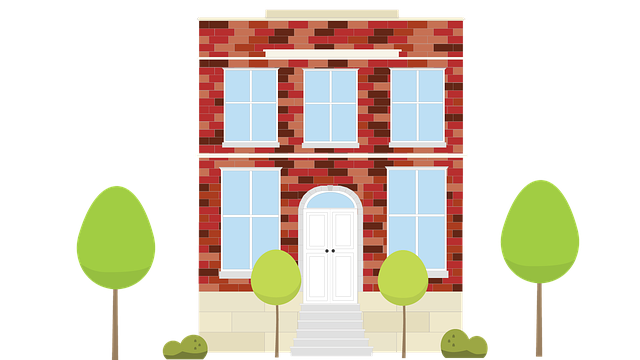Dense urban noise from traffic, construction, and public spaces negatively impacts city dwellers' lives and city functioning. Smart locks for city homes, integrated with noise-sensitive alarm systems, offer a potential solution. These advanced devices use real-time sensors to detect noise levels, automatically adjusting or sealing off noisy areas during peak times, providing quieter living spaces. By enabling remote access control and automated lock behaviors, smart locks minimize constant noise associated with traditional mechanical locks, contributing to calmer, more livable cities.
Urban disruptions caused by noise pollutants are a growing concern, disrupting daily life and impacting well-being. This article explores innovative solutions: noise-sensitive alarm systems designed to minimize these disturbances. We delve into how these cutting-edge technologies, integrated with smart locks for city homes, offer a calmer urban environment. By understanding the root causes of noise pollution, exploring the technological advancements behind noise-sensitive alarms, and examining real-world implementation, we uncover the benefits these innovations bring to modern cities.
- Understanding Urban Disruptions Caused by Noise Pollutants
- The Role of Smart Locks in Creating Calmer Cities
- Technology Behind Noise-Sensitive Alarm Systems
- Implementing and Benefitting from These Innovations in Urban Living
Understanding Urban Disruptions Caused by Noise Pollutants

In urban environments, noise pollutants can cause significant disruptions, affecting both residents’ quality of life and overall city functionality. The constant hum of traffic, construction sites, and even bustling social spaces can lead to persistent noise levels that exceed safe limits. This is particularly problematic for cities where high-density living and smart locks for city homes are becoming the norm. Residents often experience sleep disturbances, stress, and reduced productivity due to unwanted noise, creating a need for effective solutions to mitigate these issues.
Noise-sensitive alarms offer a promising approach to addressing urban disruptions caused by noise. By incorporating advanced sensors and intelligent algorithms, these devices can detect and respond to noise levels in real time. Smart locks for city homes equipped with such technology could automatically adjust settings or even temporarily seal off affected areas during peak noise periods, ensuring residents enjoy quieter spaces within their urban environments.
The Role of Smart Locks in Creating Calmer Cities

In today’s urban landscapes, minimizing disruptions caused by noise is crucial for creating calmer and more livable cities. One innovative solution gaining traction is the integration of smart locks in city homes. These advanced security systems not only enhance safety but also contribute to a quieter environment. By enabling remote access control and automated lock behaviors, smart locks can reduce unnecessary noise from traditional mechanical locks. For instance, they can automatically lock when a predefined time elapses or when residents are away, eliminating the constant clicking and clanking associated with manual locking mechanisms.
Moreover, smart locks can be integrated with other home automation systems, allowing for seamless control and monitoring. This interconnectedness enables city dwellers to manage their homes’ security discreetly, minimizing loud noises that could disrupt neighbors. With features like silent unlock options and customizable access rules, these devices play a pivotal role in fostering a more peaceful urban atmosphere, making cities not just safer but also more harmonious.
Technology Behind Noise-Sensitive Alarm Systems

Noise-sensitive alarm systems represent a cutting-edge solution in urban security, designed to minimize disruptions caused by false alarms while maintaining effectiveness against potential threats. These innovative systems leverage advanced audio processing technologies to differentiate between ambient noise and actual danger signals. By integrating smart locks for city homes, these alarms not only protect properties but also ensure that residents are undisturbed by needless alerts.
At the heart of this technology lies sophisticated sound analysis, where algorithms detect patterns and variations in noise levels, allowing them to recognize familiar environmental sounds. This enables the alarms to remain silent when it’s safe, such as during normal household activities, and trigger only when unusual or potentially harmful noises are detected. The integration with smart locks ensures that alarm responses can be tailored to specific scenarios, offering a more nuanced approach to urban security.
Implementing and Benefitting from These Innovations in Urban Living

Implementing noise-sensitive alarms and integrating smart locks for city homes are innovative approaches that significantly enhance urban living. These technologies cater to the unique challenges faced by metropolitan areas, where managing disruptions and ensuring a peaceful environment are paramount. Noise-sensitive alarms play a pivotal role in minimizing disturbance levels, especially in densely populated regions with close proximities between residences. By detecting and responding to noise levels, these alarms foster a more harmonious community atmosphere.
Smart locks further complement this urban revolution by offering enhanced security and convenience. City dwellers can remotely manage access to their homes, aligning with the growing trend of smart home automation. This technology not only provides peace of mind but also contributes to a safer and more efficient urban environment, where noise disruptions are mitigated, and security is tightened through advanced lock mechanisms.
Noise-sensitive alarm systems represent a promising innovation in urban living, offering a more harmonious balance between security and tranquility. By leveraging smart locks and advanced noise detection technology, cities can minimize disruptions caused by excessive noise pollutants. Implementing these solutions not only enhances the quality of life for residents but also fosters a calmer and more sustainable urban environment. Integrating smart locks for city homes and noise-sensitive alarms is a step towards creating quieter, more livable spaces, benefitting current and future generations.
